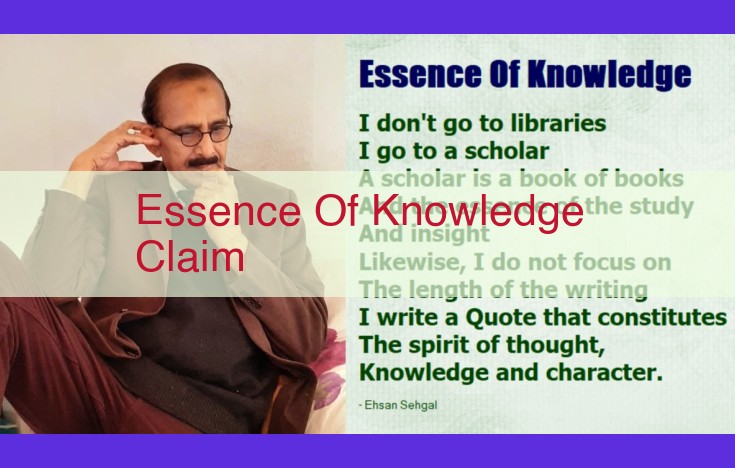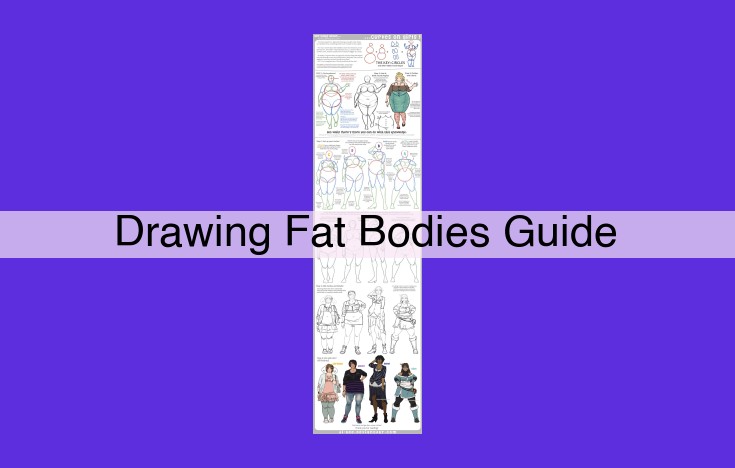The essence of a knowledge claim lies in its combination of truth, justification, reliability, validity, coherence, comprehensiveness, significance, and originality. A knowledge claim asserts a belief or statement that is supported by evidence or reasons, ensuring its reliability and validity. Its alignment with accepted beliefs and its significance in shaping understanding further contribute to its credibility. The comprehensiveness and originality of the claim demonstrate its completeness and novelty, respectively. By meeting these criteria, a knowledge claim gains strength and becomes a valuable contribution to the body of knowledge.
Truth: The Bedrock of Knowledge
In the vast landscape of knowledge, truth stands as an indispensable beacon, guiding us through the labyrinth of perceptions and claims. It forms the very foundation upon which our understanding of the world is constructed.
At its core, truth is the correspondence between a statement and reality. When we utter a proposition and it accurately reflects the world as it truly is, we can say that proposition is true. This concept is intricately woven into the fabric of our language, where words and sentences serve as tools to convey our thoughts and beliefs about the world around us.
The pursuit of truth is a testament to our innate desire to make sense of our existence. It drives us to question, investigate, and seek knowledge that aligns with reality. This relentless quest has given rise to disciplines such as epistemology, the study of knowledge, and semantics, the study of meaning. Through careful analysis of language and logic, we strive to discern the truth value of propositions, distinguishing them from falsehoods and uncertainties.
Justification: The Support for Truth Claims
- Explain justification as evidence or reasoning that supports a claim.
- Discuss how argumentation, logic, and evidence contribute to justification.
Justification: The Bedrock of Knowledge Claims
In the realm of knowledge, truth is the North Star, guiding us towards understanding the world around us. However, truth is not always self-evident. It requires justification, the solid foundation upon which our beliefs rest.
Arguments: The Scaffolding of Justification
One cornerstone of justification is argumentation. It’s the art of constructing logical chains of reasoning that support our claims. By presenting evidence, drawing inferences, and debunking objections, we strengthen the validity of our arguments.
Logic: The Unerring Compass
Logic serves as the compass in the ocean of reasoning. It provides a set of rules and principles that ensure the soundness of our arguments. By applying logic, we can differentiate between valid and invalid arguments, separating the wheat from the chaff.
Evidence: The Pillars of Support
Evidence comes in many forms, from empirical observations to historical records. It serves as the pillars that support our claims, giving them credibility and reliability. By carefully weighing the evidence, we strengthen the justification for our beliefs.
In conclusion, justification is the indispensable ingredient in the pursuit of knowledge. It’s the process by which we validate our claims and navigate the murky waters of uncertainty. Without justification, our beliefs would be mere assertions, floating aimlessly in the void of knowledge.
Reliability: The Consistency of Truth Claims
Unveiling the quintessence of knowledge claims, reliability plays a pivotal role in ensuring the unwavering consistency of these claims across the tapestry of time and diverse contexts.
Imagine this: You’re at a bustling marketplace, surrounded by vibrant stalls boasting an array of wares. Amidst the clamor, a vendor with an enigmatic smile beckons you closer. “My friend,” he whispers, “I possess a secret recipe for eternal youth.” Intrigued, you inquire further. The vendor assures you that this elixir has worked wonders for his countless patrons, granting them the gift of ageless beauty.
But as you delve deeper, a nagging question lingers in your mind: Can I trust his claims? How can you ascertain the reliability of the vendor’s assertions?
This is where the concept of reliability steps into the limelight. Reliability refers to the rock-solid consistency of a truth claim over time and across different contexts. It’s like a sturdy bridge that connects a claim to its foundation of evidence, ensuring that it doesn’t crumble under scrutiny.
To forge a bond of reliability, various disciplines come together in a harmonious symphony. Statistics, the language of numbers, plays a crucial role in quantifying the consistency of a claim. By analyzing data and drawing inferences, statisticians provide concrete evidence to support or refute the claim.
Measurement, the art of assigning numerical values to phenomena, is another indispensable tool in establishing reliability. Imagine measuring the speed of a car using a speedometer. If multiple measurements under varying conditions yield consistent results, this strengthens our confidence in the reliability of the claim that the car has a certain speed.
Reliability theory, a specialized branch of statistics, delves even deeper into the intricate workings of consistency. It provides a rigorous framework for evaluating the reliability of measurement instruments, such as surveys or psychological tests. By ensuring that these tools are consistent in their operation, we can increase our trust in the claims they generate.
In the case of our mysterious elixir, the vendor’s claims of its efficacy could be tested through reliable scientific studies. Researchers could conduct controlled experiments, comparing the effects of the elixir to a placebo over a period of time. If the results consistently demonstrate a significant rejuvenating effect, then we would have a strong basis for believing the vendor’s claims.
Remember, reliability is the cornerstone of truth claims that can withstand the test of time and diverse perspectives. As we navigate the ever-evolving landscape of knowledge, it’s essential to scrutinize claims critically, seeking out those that demonstrate reliability and giving them the credence they deserve.
Validity: The Soundness of Truth Claims
In the realm of knowledge, the validity of a claim is paramount. It reflects the soundness of the reasoning that supports it, ensuring its trustworthiness and credibility. Without validity, truth claims become mere assertions, devoid of the rigor and reliability that distinguish them from mere opinions.
Logic: The Foundation of Validity
At the heart of validity lies logic, the science of reasoning. Logic provides a framework for evaluating the soundness of an argument, ensuring that its conclusions logically follow from its premises. Deductive logic guarantees that if the premises are true, the conclusion must also be true. For example, the claim “All dogs are mammals, and Buddy is a dog. Therefore, Buddy is a mammal” is deductively valid because the conclusion is necessarily true if the premises are true.
Induction: Expanding Our Knowledge
While deduction provides absolute certainty, inductive logic allows us to draw reasonable conclusions from observations and evidence. Inductive arguments are not guaranteed to be true, but they increase the probability of reaching accurate conclusions. For instance, if we observe a flock of ravens with black feathers, we can inductively infer that most ravens are black. Although this claim is not deductively valid, it is reasonable based on the evidence.
The Role of Empirical Evidence
Empirical evidence plays a crucial role in establishing the validity of truth claims. By experimentation, observation, and measurement, we gather data that supports or refutes our hypotheses. Valid claims are supported by empirical evidence that is relevant, reliable, and sufficient. The more robust the evidence, the more valid the claim becomes.
Validity is the hallmark of sound and trustworthy truth claims. By adhering to the principles of logic and empirical evidence, we can construct arguments that are logically coherent and supported by reliable data. Validity ensures that our knowledge is not based on mere speculation or wishful thinking but on solid reasoning and evidence. It is the foundation upon which we build our understanding of the world and make informed decisions.
Coherence: The Harmony of Truth Claims
In the tapestry of knowledge, coherence emerges as a guiding principle, aligning truth claims with the fabric of accepted beliefs. It weaves a harmonious thread that connects new ideas to the established framework of understanding.
Coherence, in essence, is the consistency of a claim with the body of knowledge that we hold to be true. It ensures that new information doesn’t clash with our existing beliefs but rather finds its place within the grand scheme of things.
Philosophical and epistemological considerations shape our perception of coherence. From the Rationalist perspective, truth is inherent in the mind, and coherence serves as a test of its validity. Conversely, Empiricists prioritize sensory experience, viewing coherence as a means of reconciling new observations with existing knowledge.
Evaluating coherence involves considering the logical implications of a claim. Does it contradict established principles or create logical paradoxes? By scrutinizing the connections between ideas, we can assess their coherence and determine if they enhance or challenge our understanding.
Moreover, coherence transcends logical analysis, encompassing epistemic coherence. This refers to the alignment of a claim with the methods and standards of knowledge acquisition. If a claim is supported by rigorous research or expert consensus, it gains credibility and coherence within the epistemic community.
By embracing coherence, we strengthen the reliability of our knowledge. When new claims fit seamlessly into the existing framework, we gain confidence in their truthfulness. Coherence provides a stable foundation on which to build our understanding, ensuring that new insights are compatible with the bedrock of established knowledge.
Comprehensiveness: The Completeness of Truth Claims
In the realm of knowledge, comprehensiveness reigns supreme as the cornerstone of complete truth claims. It embodies the aspiration to encompass all pertinent information, ensuring a thorough and exhaustive understanding of a given subject.
Quantifying Comprehensiveness: The Role of Argumentation, Information Theory, and Data Analysis
Embracing a holistic approach to knowledge, argumentation provides a rigorous framework for assessing the breadth and depth of a claim. By carefully considering the premises and inferences, we can discern whether a claim adequately captures the full spectrum of relevant perspectives.
Furthermore, information theory offers a quantitative lens through which to measure the information content of a claim. By examining entropy, noise, and redundancy, we can determine if a claim efficiently conveys all the necessary information without unnecessary duplication.
In the realm of data analysis, techniques such as descriptive statistics, regression models, and hypothesis testing enable us to assess the representativeness and validity of data. This empowers us to evaluate whether the data utilized in supporting a claim is comprehensive and unbiased, painting a clear and accurate picture of the underlying phenomenon.
Concluding Remarks: The Essence of Comprehensiveness
In the tapestry of knowledge, comprehensiveness emerges as an indispensable thread, interwoven into every credible truth claim. By thoroughly examining all relevant information, we strengthen the foundation of our understanding and empower ourselves to make informed decisions.
As we embrace the pursuit of comprehensive knowledge, we unlock the potential for deeper insights, more accurate predictions, and a more nuanced appreciation of the world around us.
The Significance of Truth Claims
In the vast tapestry of knowledge, truth claims hold a profound importance, shaping our understanding of the world around us. Significance lies at the heart of these claims, determining their impact and relevance in shaping our belief systems.
Philosophy of Science
Philosophy of science provides a lens through which we can evaluate the significance of scientific claims. It delves into the nature of scientific inquiry, examining how theories are formulated, tested, and validated. By understanding the processes that govern scientific knowledge, we can discern the relative weight of different claims.
Research Methods
The methodology employed in research plays a crucial role in determining the significance of findings. Rigorous research designs, careful data collection, and appropriate statistical analysis contribute to the strength and reliability of results. When claims are supported by well-conducted research, their significance is enhanced.
Epistemology
Epistemology explores the nature of knowledge itself. It examines the sources of justification and the criteria by which we evaluate the truth of beliefs. By understanding how we acquire and assess knowledge, we can better comprehend the significance of different truth claims.
Shaping Understanding
Ultimately, the significance of truth claims lies in their capacity to shape our understanding. Valid, reliable, and comprehensive claims provide a solid foundation for our beliefs and inform our decisions. By scrutinizing the significance of truth claims, we can navigate the complexities of knowledge and strive for a more informed and enlightened perspective.
Originality: The Spark of Innovation
At the heart of knowledge creation lies originality, the spark that ignites the flame of groundbreaking discoveries. It’s the novelty, the uniqueness that distinguishes a knowledge claim from the sea of existing ideas.
Originality is not merely about creating something that hasn’t existed before, but rather about presenting a fresh perspective or unveiling hidden connections. It requires creativity and innovation, the ability to think outside the box and challenge established norms.
Creativity as the Catalyst
Creativity, the fuel that drives originality, is a magical blend of imagination and reason. It’s about seeing possibilities where others see limitations and connecting seemingly disparate ideas in unexpected ways.
Innovation as the Path to Progress
Innovation, the practical realization of creativity, is the key to unlocking originality. It involves transforming novel concepts into tangible advancements. Whether it’s a technological breakthrough or a novel approach to solving a long-standing problem, innovation propels knowledge forward.
The Genesis of Original Knowledge
Original knowledge is not born in a vacuum. It builds upon existing knowledge, expanding its boundaries and deepening our understanding of the world. It’s a collaborative endeavor, with each new contribution adding to the collective store of human knowledge.
By embracing originality, we foster progress, stimulate innovation, and ignite the spark that leads to groundbreaking discoveries. It’s a testament to the human spirit’s unwavering pursuit of truth and the boundless possibilities that lie within the realm of knowledge.




